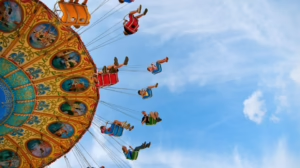Exclusive Interviews: Rising Stars You Need to Know This Year
As the entertainment landscape continues to evolve, a new wave of talent is emerging to captivate audiences across different mediums. From film to music and social media, the rising stars of 2023 are not just making a name for themselves; they are reshaping the future of their respective industries. In this exclusive feature, we shine a spotlight on some of the most promising talents you need to keep your eye on this year. Through in-depth interviews, these individuals share their journeys, aspirations, and the challenges that have shaped them into the burgeoning stars they are today.
1. Amira Johnson – Actress
Background: Hailing from a small town in North Carolina, Amira Johnson found her passion for acting at a young age in local theater productions. Fast forward to 2023, and she has just secured a leading role in a highly anticipated coming-of-age film that explores themes of identity and self-discovery.
Interview Insights:
In our conversation, Amira emphasized the importance of authenticity in her performances. “I want to tell stories that resonate with people. My goal is to portray characters that feel real and relatable,” she said. When asked about the impact of her upbringing on her work, she noted, “Growing up in a close-knit community, I learned the value of connection. That’s something I carry into every role.”
2. Marcus Lee – Musician
Background: Marcus Lee is a 22-year-old singer-songwriter from Los Angeles who is making waves with his fusion of R&B and pop. His debut album, which captures the essence of youthful love and heartbreak, is set to drop later this year.
Interview Insights:
During our chat, Marcus highlighted the influence of his diverse musical background. “I grew up listening to everything from classic rock to hip-hop, and that’s shaped my sound,” he explained. His songwriting process is deeply personal. “Every song comes from a real experience or emotion. I want my audience to feel like they’re part of my journey.”
3. Elena Torres – Influencer and Content Creator
Background: At just 19, Elena Torres has amassed a following of over a million on social media with her insightful content on mental health and self-care. With her upbeat personality and relatable advice, she is rapidly becoming a voice for her generation.
Interview Insights:
Elena spoke candidly about the pressures of being in the public eye. “I try to keep it real with my followers. It’s easy to put on a perfect facade, but I think it’s important to show vulnerability,” she shared. Her mission is to destigmatize mental health issues and create a safe space for open dialogue among young people.
4. Khalid Ahmed – Filmmaker
Background: Khalid’s debut film was featured at several international film festivals, garnering praise for its poignant storytelling and innovative cinematography. The 25-year-old filmmaker from Chicago is now working on his second project, which tackles social justice themes.
Interview Insights:
Khalid emphasized the power of cinema as a tool for change. “Film can be a language that exceeds boundaries. I want my work to inspire dialogue and change perceptions,” he stated passionately. His unique perspective, drawn from his multicultural background, profoundly influences his storytelling.
5. Sofia Ramirez – Dancer and Choreographer
Background: Sofia Ramirez has captivated audiences with her dynamic dance performances and fresh choreography. After a groundbreaking performance at a major music festival, she has become a sought-after artist in the dance community.
Interview Insights:
When discussing her artistic influences, Sofia said, “Dance is such a beautiful form of expression. It’s a combination of my emotions, culture, and the stories I want to tell.” She also expressed the importance of collaboration in her work, stating, “I love working with other artists and learning from them. It’s a shared journey.”
Conclusion
As we look to the future, the rising stars of 2023 represent both talent and resilience. Each of these individuals has a unique story to tell, and their contributions will undoubtedly leave a lasting impact on their industries. As they continue to grow and evolve, one thing is clear: the next generation of artists is ready to take the spotlight and inspire us all. Keep an eye on Amira, Marcus, Elena, Khalid, and Sofia—they are just getting started, and the best is yet to come.
[modern_footnote_source_link]
























Add Comment